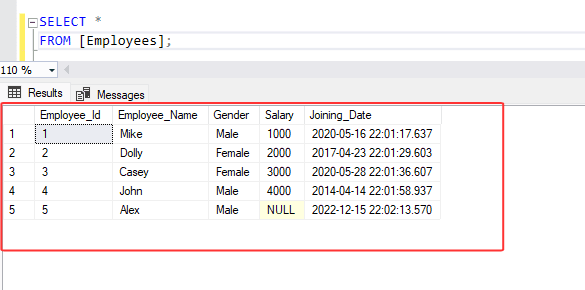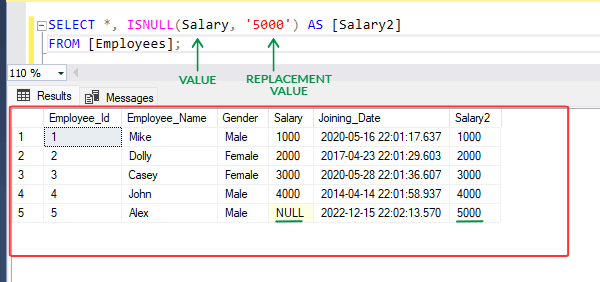Text copied!
ISNULL function
Hi! You should check
TRY_CONVERT function
post first.
In SQL, ISNULL function is used to replace NULL values with a specified alternative value.
The syntax of the ISNULL function generally looks like this :
ISNULL(expression, replacement_value)
• Specify the 'expression/value' to be checked for NULL.
• Specify the replacement_value to replace the NULL with if the value is NULL.
Here's an example of how you might use the ISNULL function :
1. Let's assume we have a table named "[Employees]".

2. Let's assume you want to replace any NULL values in the Salary column with the value '5000'.
3. Run below SQL statement :
SELECT *, ISNULL(Salary, '5000') AS [Salary2]
FROM [Employees];
4. In above statement, ISNULL function replaces all NULL values within the Salary column with the value '5000'.

Remember :
Using this function in a select statement won't modify the [Employees] table directly, but it will only be reflected in the select statement's output.
To enhance your understanding of 'SQL functions', be sure to check out our next tutorial.
Frequently Asked Questions :
Thank You! You should check
NULLIF function
post next.